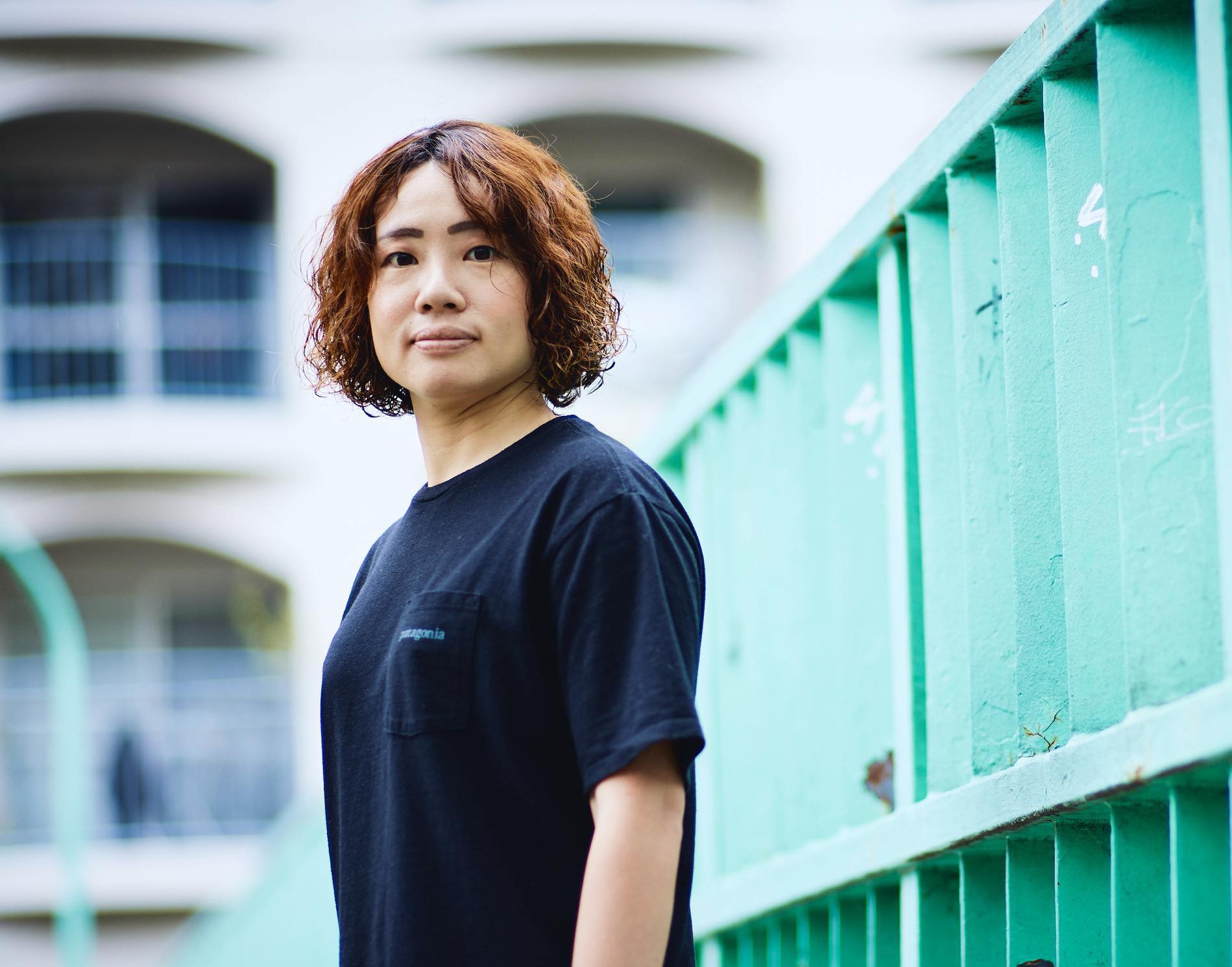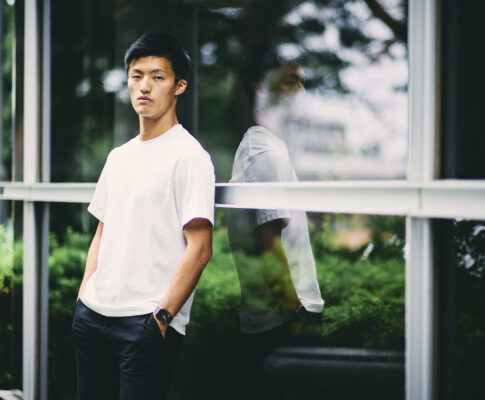目次
- Originally disliked mountains?
- Depending on your route choice, you can take a course that crosses a river, or a course where you can slide down…
- What equipment do you need for orienteering?
- With the ability, I can immediately join the national team.
- My favorite mountain is “The Noble Prince of the Southern Alps”.
- Sharing my experience in the mountains
- Former mountain chums also aim to compete in the Deaflympics
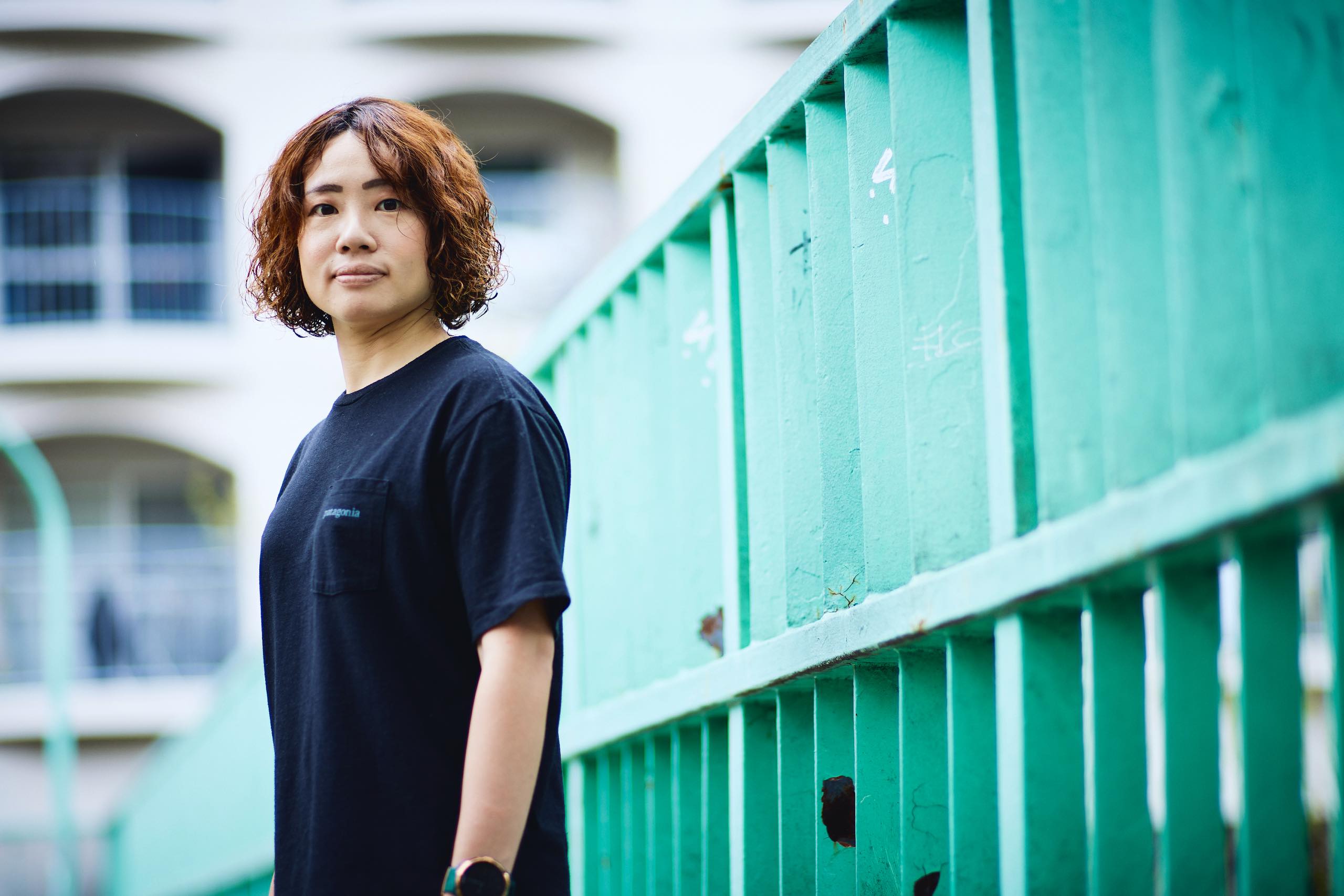
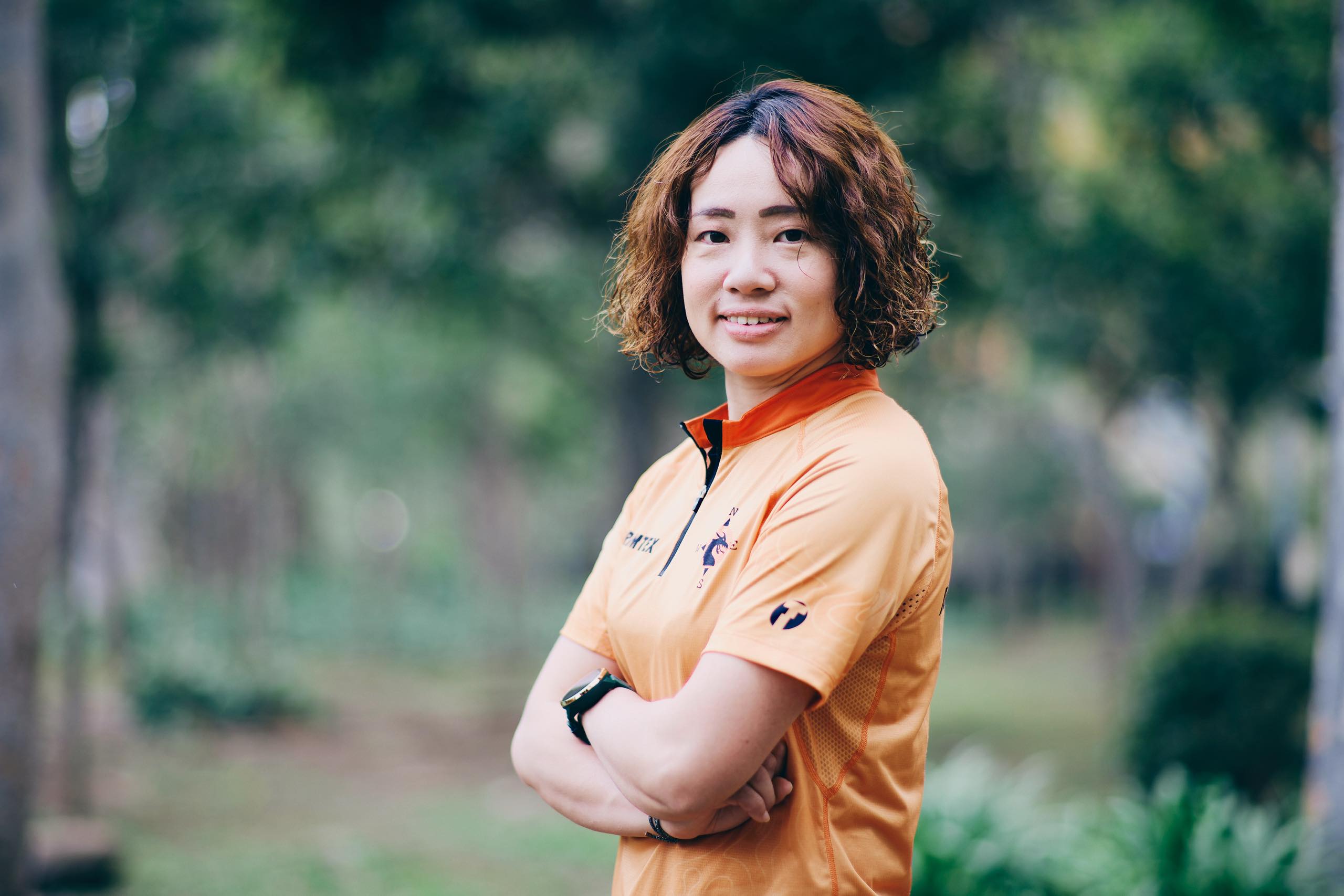
Yuka Tsuji
Born in Hyogo Prefecture in 1993. Belongs to JTB Corp.
Congenital deafness. The only female orienteer at this time.
In 2022, after only one year of orienteering, she won a prize in her age class at the Japan Orienteering Championships. Long distance W21AS 3rd, Middle distance W21AS winner, Sprint W30A 2nd.
She also does mountaineering, trail running, and climbing, and is in the mountains year-round.
She aims to qualify for the Elite Class (Japan Orienteering Championships) and wins a medal at the Tokyo 2025 Deaflympics.
Originally disliked mountains?
――Please tell us how you got started in orienteering.
I have enjoyed mountain climbing, and a friend who knew about it told me about a sport called orienteering. At first, I didn’t know much about the sport, so I was like, “hmmm,” but a little later, my friend contacted me and told me that there was going to be a national competition. There are classes “A,” “B,” and “N” for the national competition, and beginners usually enter the N class, but I participated in the intermediate B class. However, unlike mountain climbing, it was difficult because we were going where there were no paths. When I managed to finish the race and looked at the other classes, I saw that the elite A class athletes were covered in mud and even had scratches on them…I was surprised to see that, and at the same time, I thought it looked interesting to see them running hard, and that’s how I got my foot in the door of this world.
――What made you decide to continue competing after that?
Orienteering must be completed in time and all control points (checkpoints) must be visited in order to keep a record. Fortunately, I was able to keep my time at my first competition, but I was disqualified because I could not go around all the control points at the next competition I entered in Izu Oshima. I had never been disqualified in any of the sports I had played, and I was so shocked that I couldn’t sleep for about a week. Why did I fail? After doing my own research, I realized that it was important to accumulate experience, and from then on, I started participating in competitions every week. I think my passion for orienteering was born as a result of my disqualification.
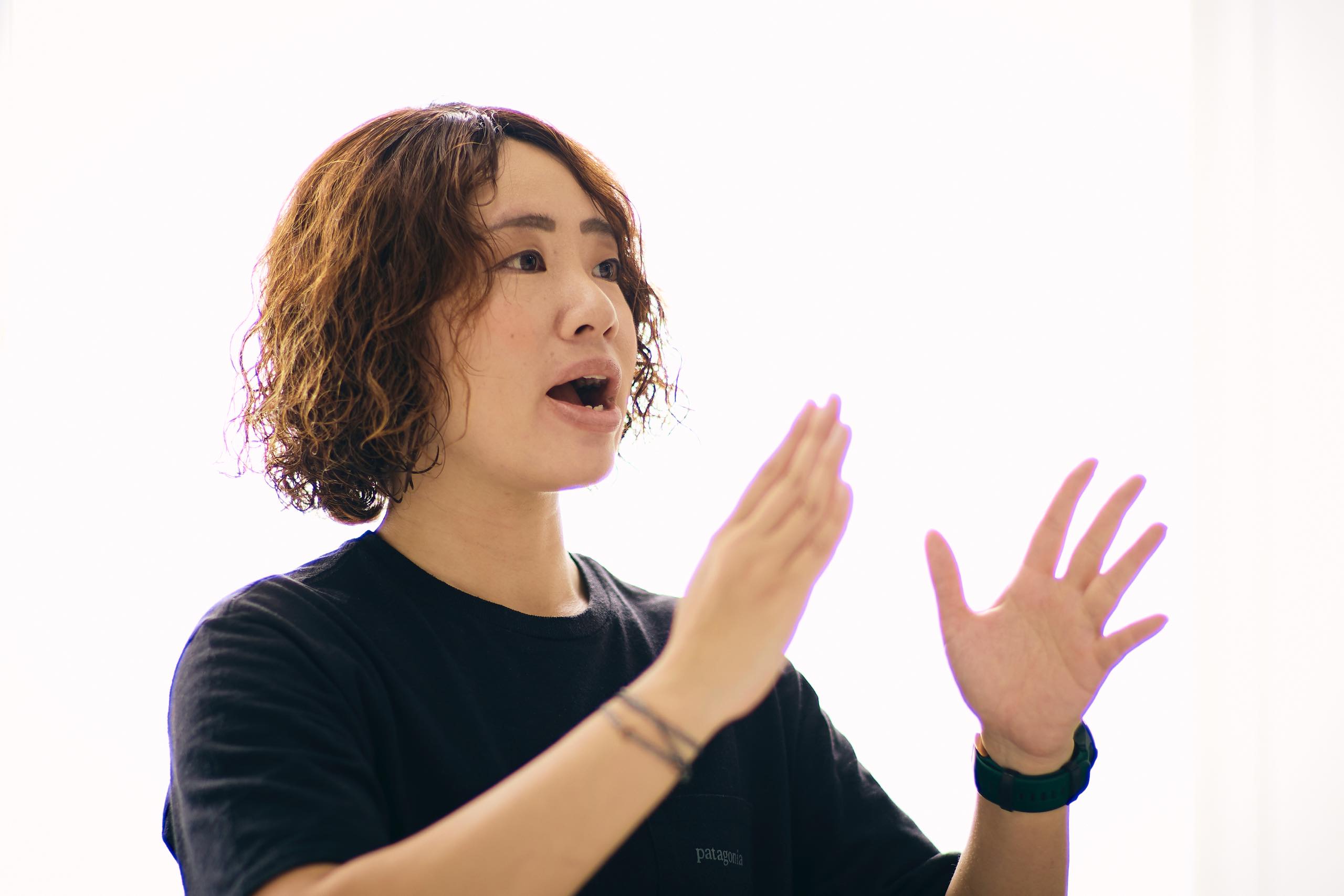
as a result of my disqualification.
――How did you get started in mountaineering?
I originally hated mountains! I was invited once when I was a student, but the pictures they showed me at the time showed only elderly people…At the time, I was in my 20s and had the impression that mountain climbing = a hobby for the elderly, which did not interest me much. But one day when I was taking a nap, all of a sudden, I had the urge to go to the mountains! I couldn’t suppress it and once I climbed a mountain, I felt so good. I gradually built up my successes on lower mountains and here I am today.
Depending on your route choice, you can take a course that crosses a river, or a course where you can slide down…
――How do you practice orienteering?
The basic practice is to run. On the weekends, I participate in competitions held in various regions to gain experience. Also, it is important to train to look at a map and visualize how to determine the route. I don’t know what the route will actually be until the day of the competition, so I make sure I can do it the way I envisioned it by participating in the competition. I also have maps from previous competitions, so I use them as a reference and train myself to think about how I would proceed.
――What elements are required for orienteering?
Spirit, technique, and body are necessary. The “spirit” is mental. Orienteering is not a competition to follow someone else. Since I am fighting against myself, I must be strong enough not to let that stop me even when things do not go as envisioned or when I feel anxious because I have strayed off course. As for “technique,” it is important to choose the route and course, and how to understand the terrain. The “body” is simply physical strength. Orienteering is running where there are no roads. There are marshy areas, rough terrain, and bushes. The explosive power and physical strength to run through these areas are required.
――Is there any danger?
There is some. However, dangerous areas are taped off and staff members stand as monitors, so it is safe. However, depending on the route choice, some of the courses were dangerous. Although I chose the route myself, there are two places that left a lasting impression on me. One was a competition in Nikko, and there was a course that took you across a river… It was the rainy season, and the amount of water was huge. The water was up to my knees, and I had to cross it. The other was a competition in Ome, Tokyo, when going from the path to the ridge, there is an uphill slope. As you go up there, there is a slope that slides down and drops down toward the river… In a way, some of the trails were almost like slides!
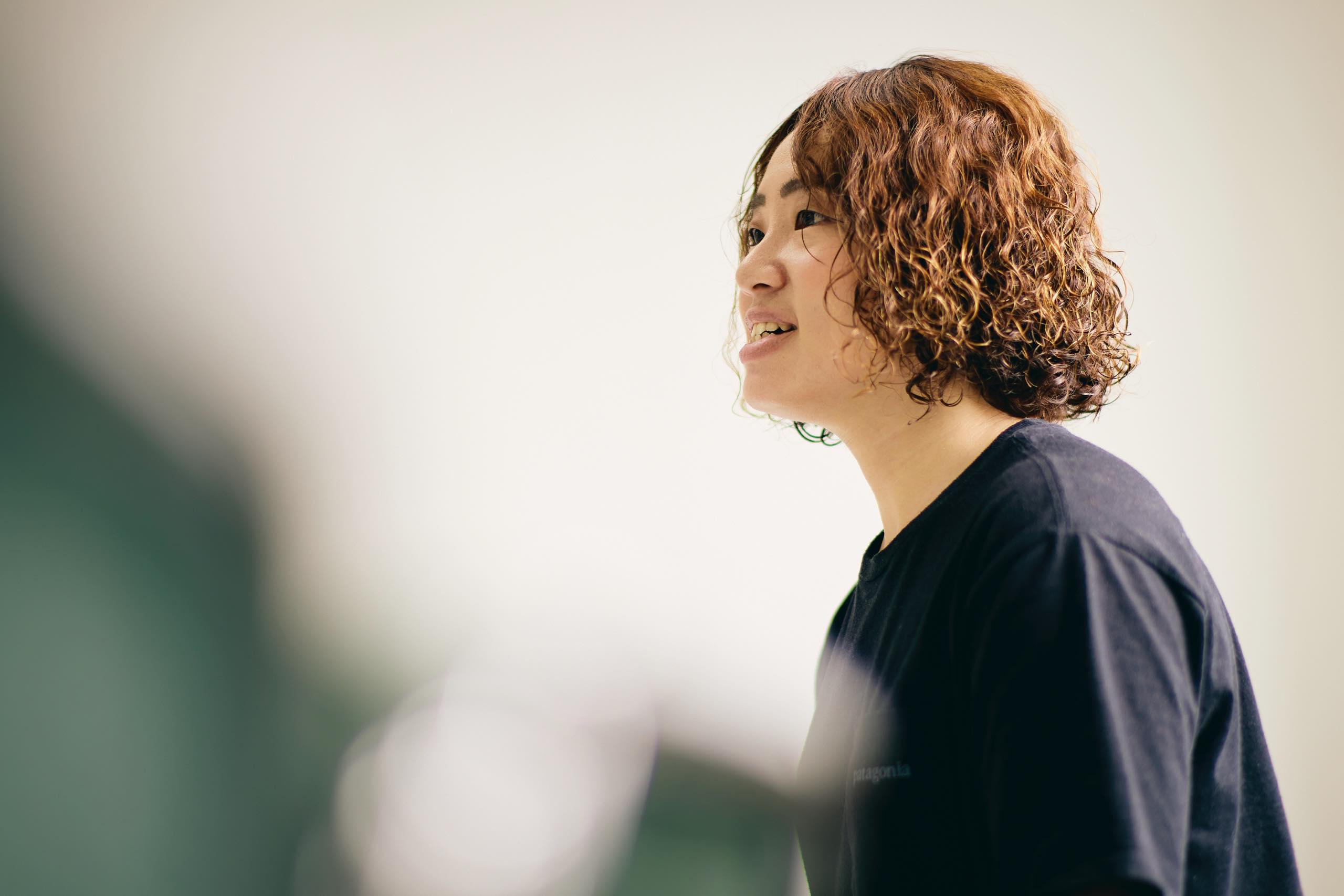
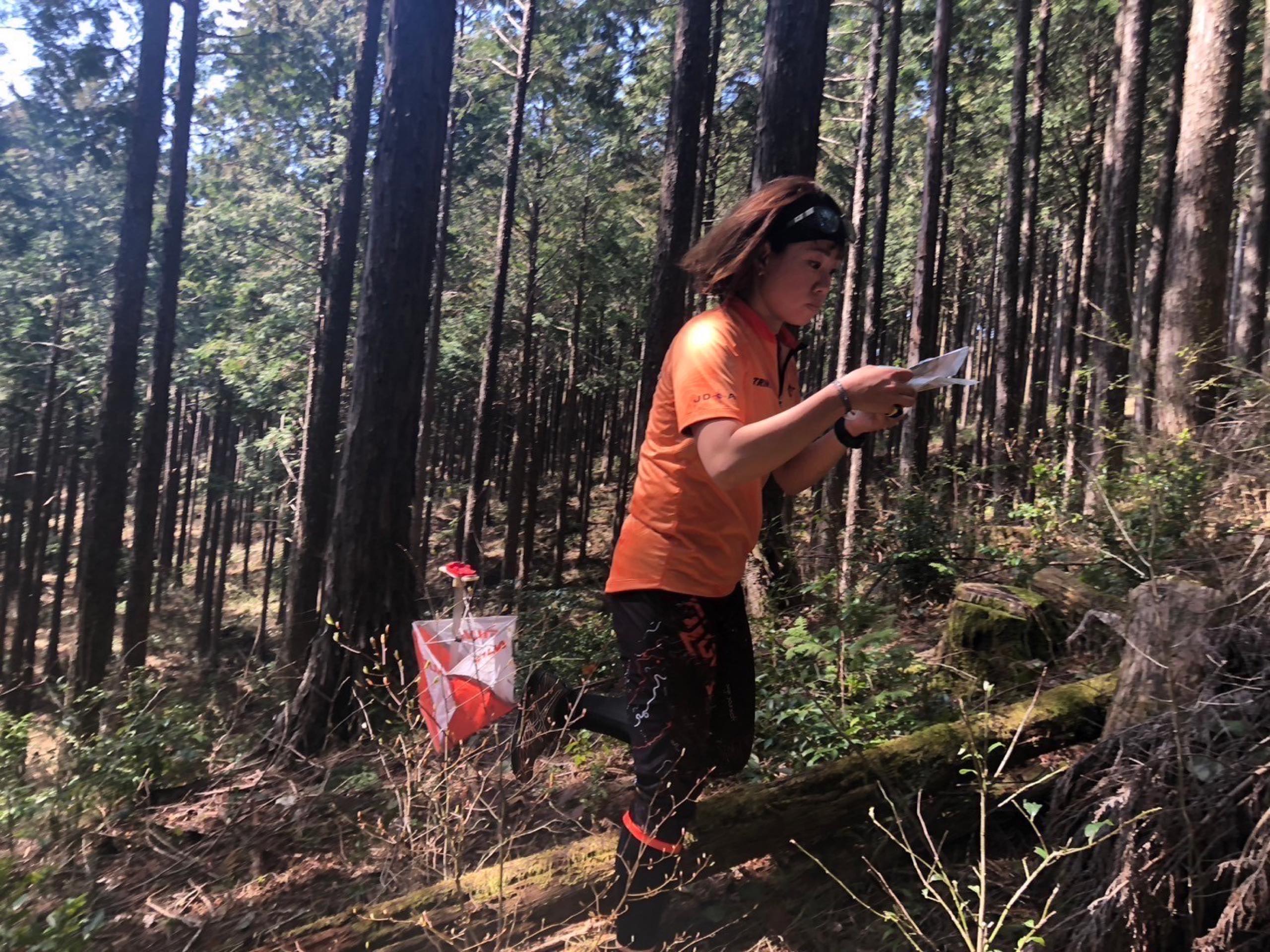
are necessary to overcome the rugged course.
*Courtesy of Yuka Tsuji
What equipment do you need for orienteering?
――What are you wearing during the competition?
There are four things; compass, map, e-card and description. The E-card is a timekeeping card to confirm that you have “turned the course correctly” or your “time record”. The description is a clear statement of the number and location of control points. It is written on the map, but it is folded, so the symbols may not be visible during the competition. I will go over both the description and the map.
――I think the importance of the compass will increase as you go down the road without a path. The compasses for the competition seem to be very precise, but what is the difference?
Normal compasses have a very shaky needle, but a compass specially designed for orienteering has a strong magnetic force, and it stops immediately. The compass for the competition is framed on the finger with a band. There are only a few stores in Japan that carry orienteering equipment, so I can either go there and buy it or order it over the internet. At large competitions, they are sold at the venue, so I sometimes buy them there.
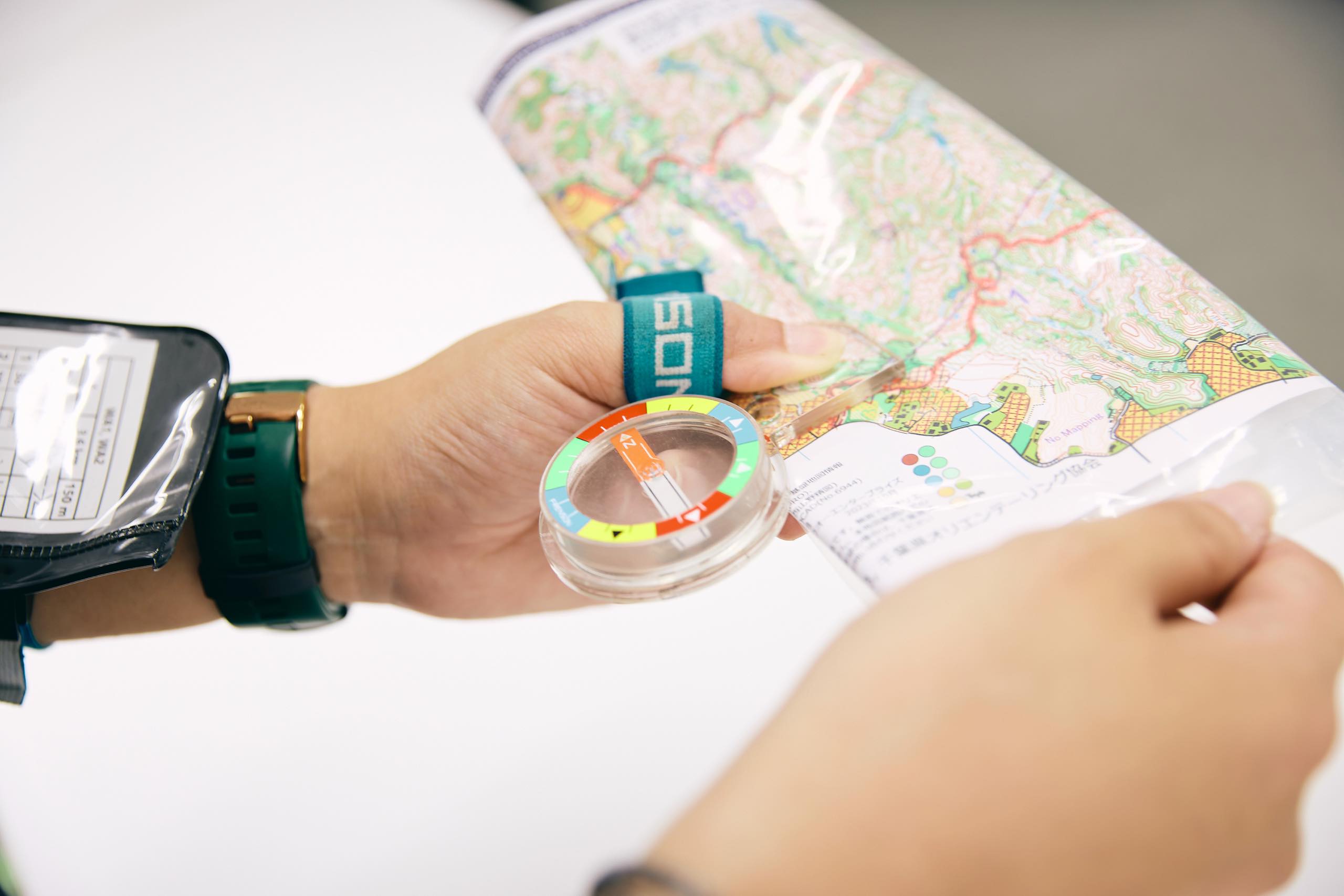
to keep going on the pathless road.
They are must-have items during competitions.
――What do you find most enjoyable and difficult about the competition?
I enjoy it when I am able to follow the plan I have imagined during the competition. It means that I could go straight to the control points, so it takes less time and I feel really good about it. On the other hand, there are times when I am going along with an image of the terrain, but I am actually in a different place. Sometimes I can’t come back from that and get disqualified, so that part is difficult.
――What kind of personality do you feel orienteering is suited to?
I think it is suitable for people who love the outdoors and running. There are so many male athletes in orienteering, but women tend to have a hard time in these competitions. Even when they participate in a trial session, they often comment that “they are tired” or that “it was difficult”, and they do not come back anymore. Men are more interested and continues after that.
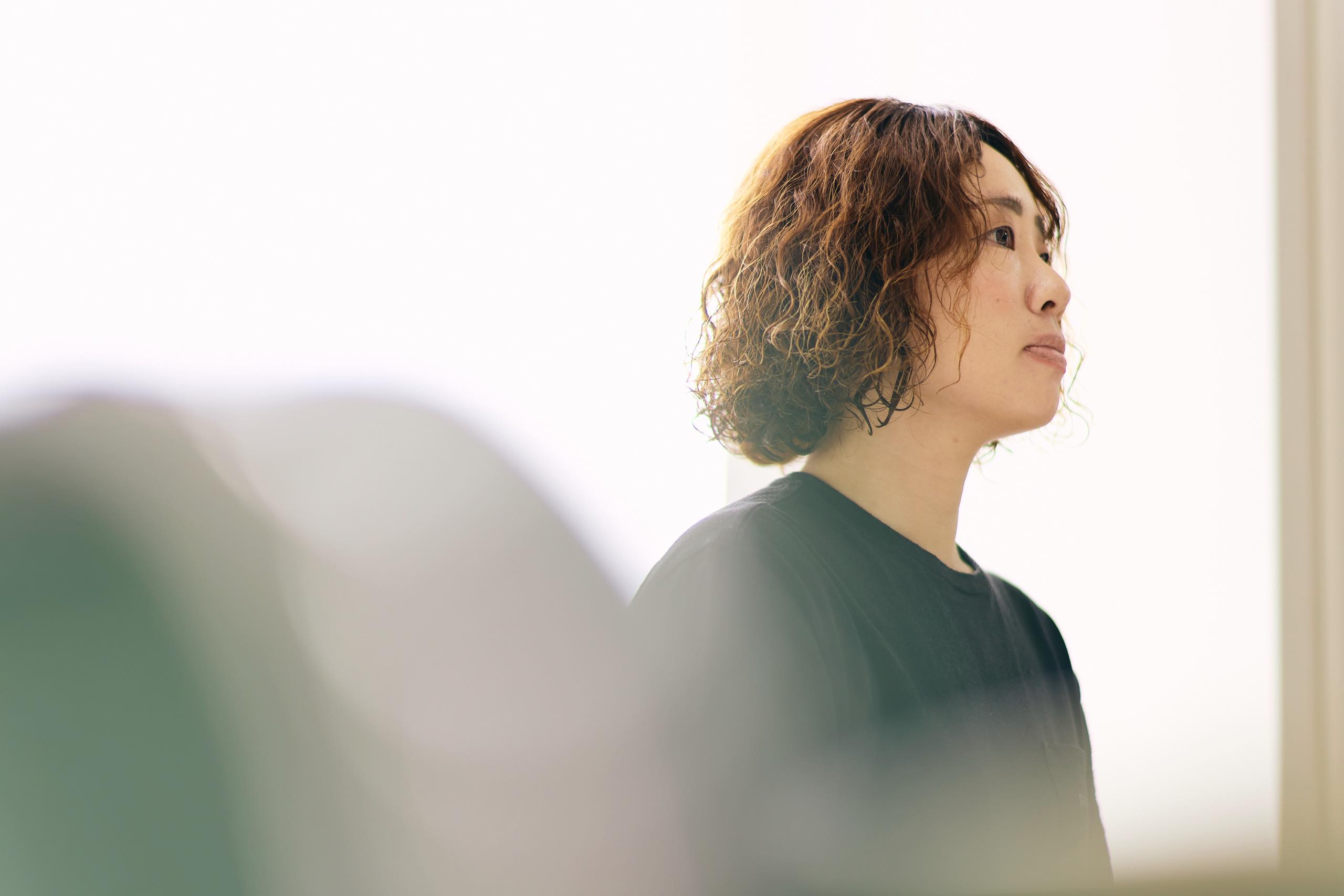
when I can finish according to the plan I have imagined.
With the ability, I can immediately join the national team.
――When did you first learn about the Deaflympics?
I had been a swimmer, so when I entered the world of Deaf Swimming, I knew there was a competition called the Deaflympics. I had no desire to pursue it in swimming, but when I started orienteering, I learned that it was also an event in Deaflympics event…I thought I could make use of my hobby, and I was excited about competing.
――What should we look out for when watching orienteering at the Tokyo 2025 Deaflympics?
I am just in the process of discussing with the Japan Deaf Orienteering Association how to entertain our guests. I don’t know what kind of venue will be used for the Games, but it is also considered how spectators can enjoy the movement of the athletes and where they are by attaching GPS and projecting location on the monitor.
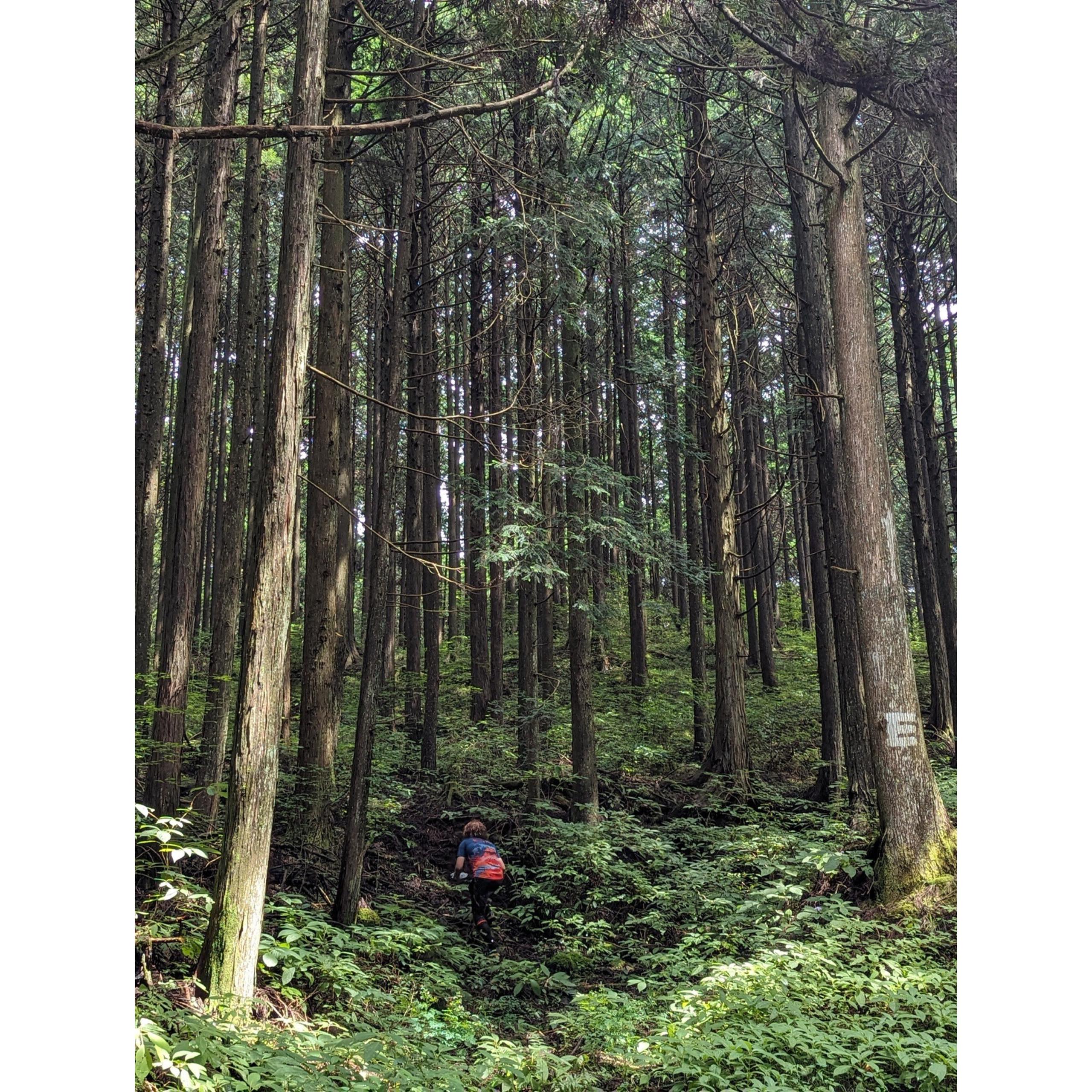
It is also a challenge for the sport of orienteering.
*Courtesy of Yuka Tsuji
――What aspects of yourself would you like people to pay attention to at the Tokyo 2025 Deaflympics?
Even if you are inexperienced in orienteering, you can join the national team if you have the ability. It is a sport where you can become powerful if you work hard enough. Orienteering is still not well known in Japan, with only about 2,000 competitors. I want to promote the sport of orienteering through the Deaflympics. As for myself, I would really like people to watch me not giving up and running to the end.
――What are you looking forward to or hoping for at the Tokyo 2025 Deaflympics?
I originally started orienteering as a hobby of mountain climbing. There are many people who support me, including orienteers, coaches, those who can hear, and people in my own community. My greatest desire is to achieve results that meet those expectations.
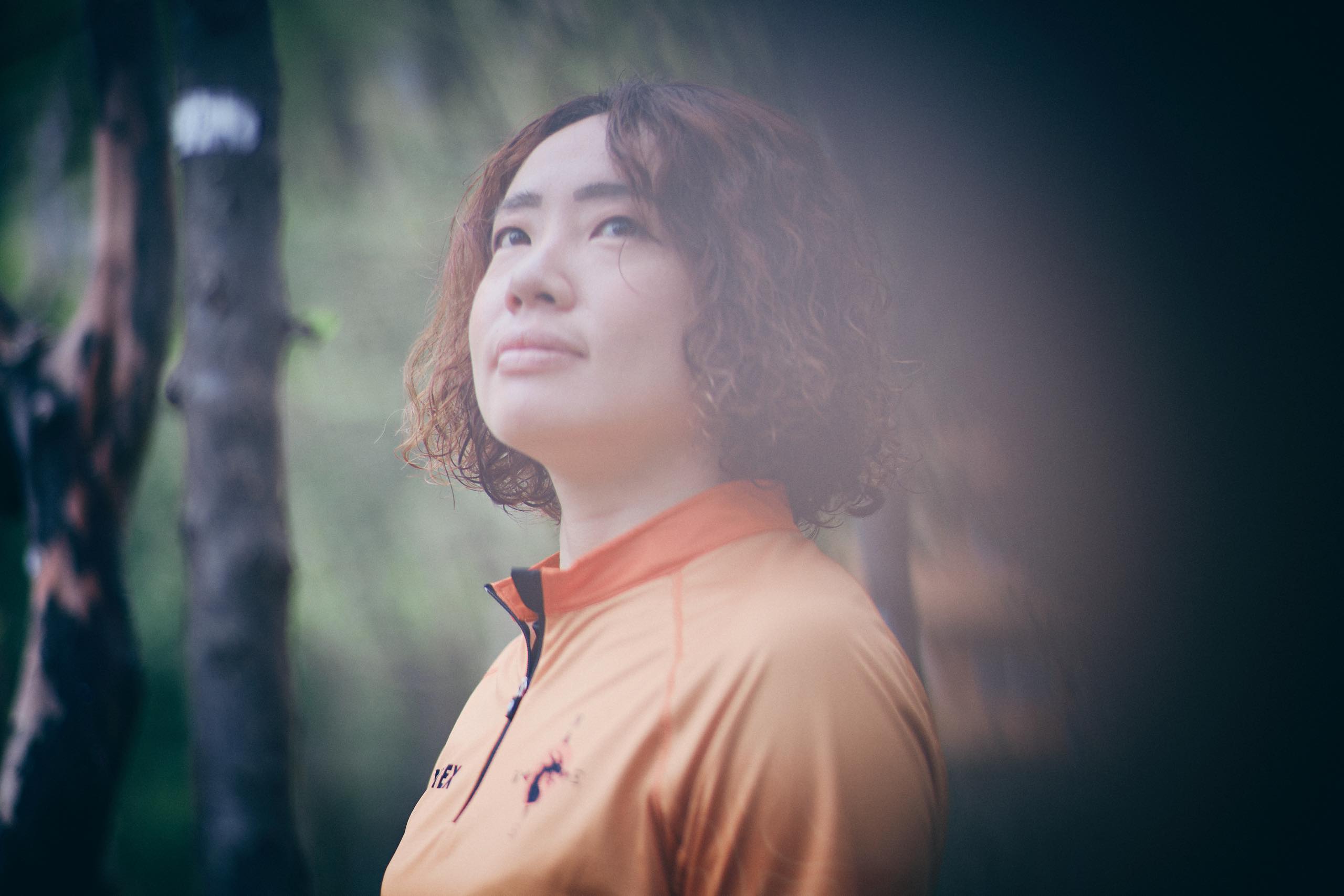
My favorite mountain is “The Noble Prince of the Southern Alps”.
――How do you often spend your holidays?
Right now I am competing in an orienteering competition on the weekends, so I can’t climb mountains. Since I have given up going to the mountains on weekends, I go to the mountains when I have consecutive holidays. Other activities include working with the local associations for the hearing impaired.
――What is your favorite mountain?
It is Mt. Kaikomagatake in the Southern Alps. Mt. Yarigatake and Mt. Hotakatake are famous in Alps, and I think many people are interested in those. However, Mt. Kaikomagatake is a manly mountain, also known as “Danjuro of the Mountains” and “the Noble Prince of the Southern Alps”. It was a big challenge for me, but it left a lasting impression on me because it was the first mountain I attempted as a step up in winter mountaineering.
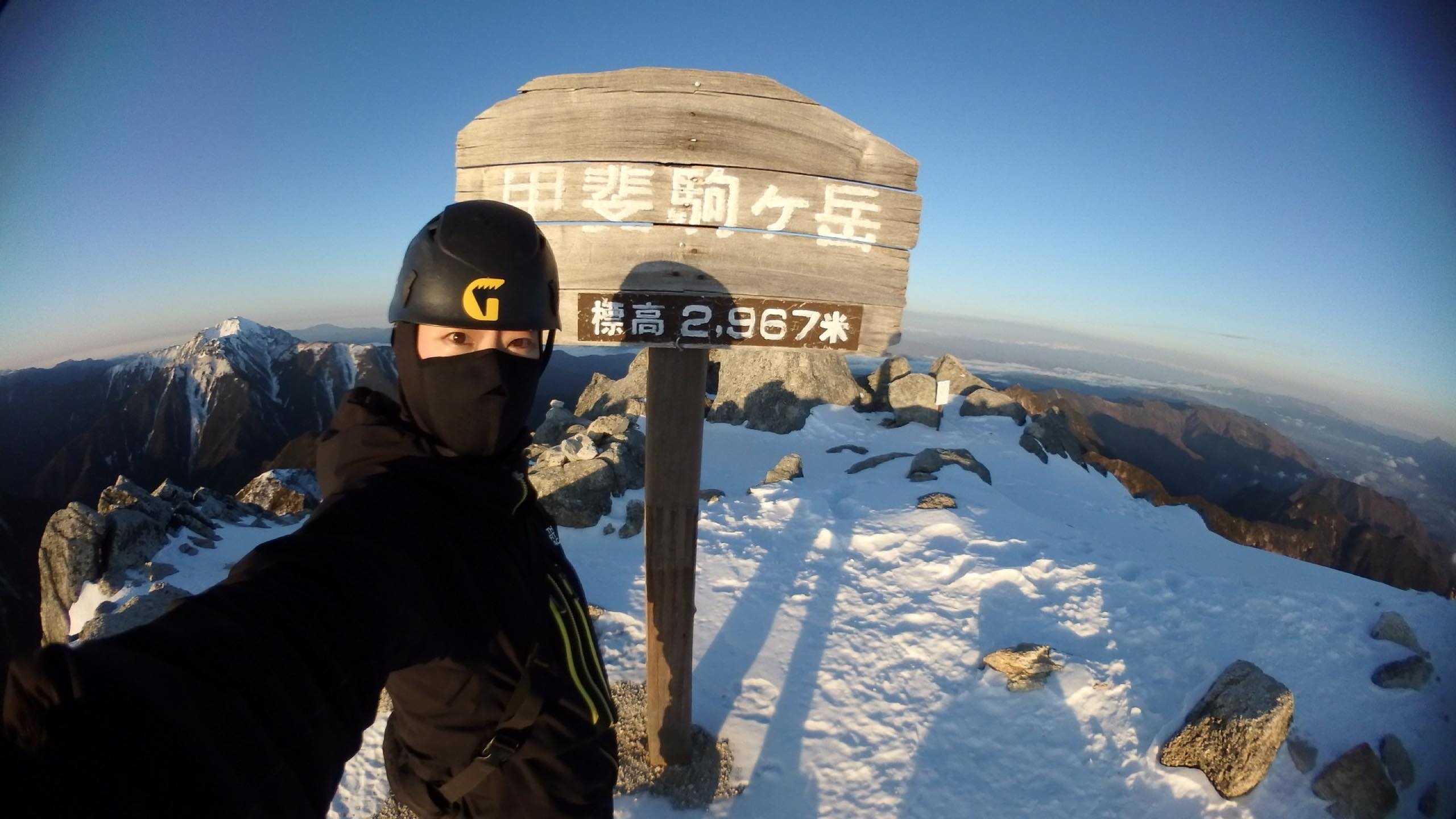
*Courtesy of Yuka Tsuji
――How many mountains have you climbed so far?
I don’t remember how many mountains, but the number of days I spend in the mountains in a year is roughly 45 to 60 days. I have climbed more than 95 of 100 mountains of Japan, and I am very close to complete. The only ones I have not climbed are Mt. Taisetsu and Mt. Poroshiritake in Hokkaido, and one or two others. I also make a mountaineering report that describes the trails I have walked and my impressions of them.
――What are some of your other passions besides climbing mountains?
I’m doing orienteering now, so I don’t do much, but I used to do bouldering 2 to 3 times a week. Before that, I did diving.
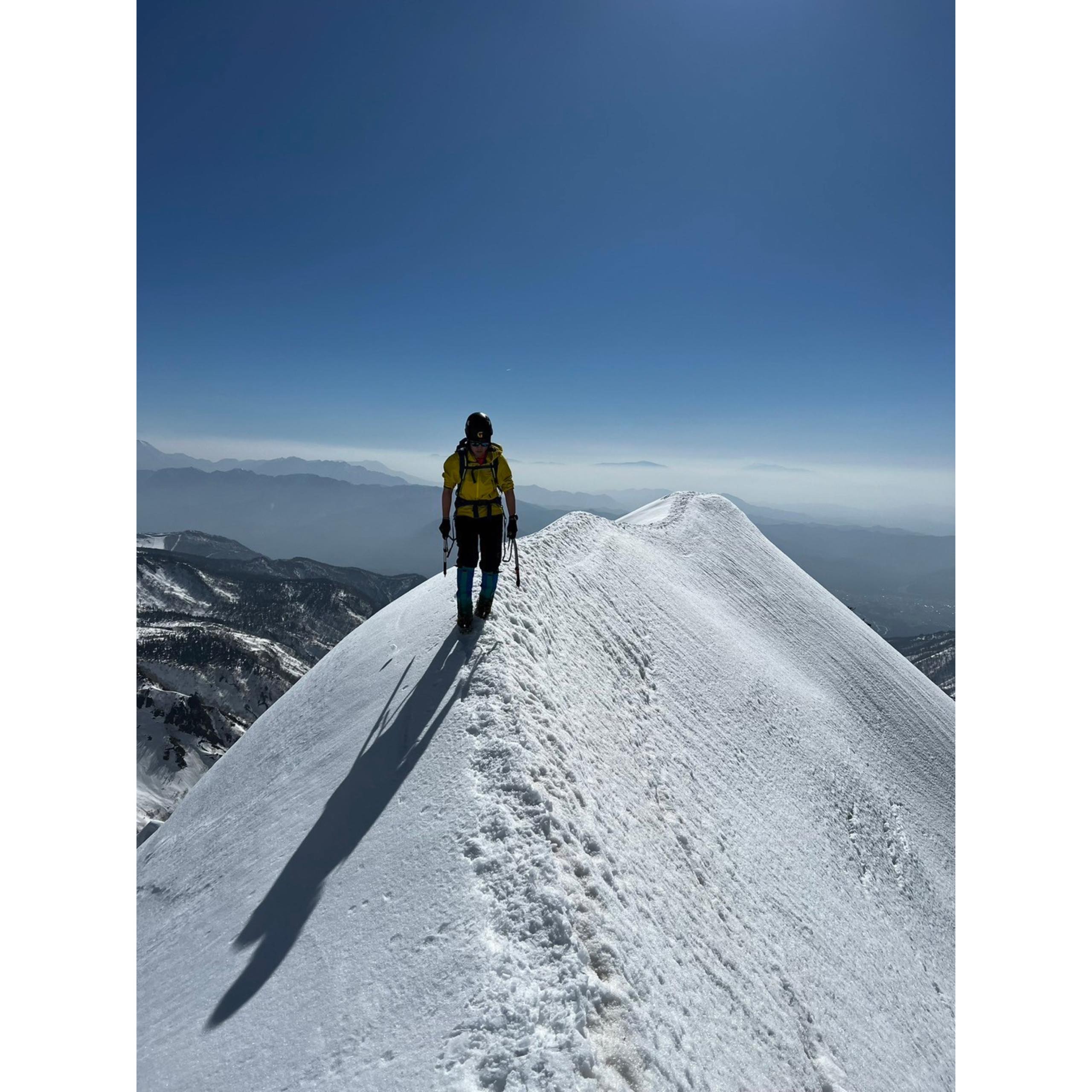
documented in the mountaineering report.
*Courtesy of Yuka Tsuji
Sharing my experience in the mountains
――I know you are very careful about what you eat. Do you have any favorite foods?
It’s Sushi. The other day, an orienteering competition was held in Oarai-cho, Ibaraki Prefecture, so I stopped by the market to buy some fish. I bought swordfish, and cut up and ate them at home. I was really impressed with its taste! But they are not sold much.
――Do you cook a lot at home?
Basically, I cook for myself. My favorite dishes are Mapo tofu and something with avocado. I make them with nutrition in mind. I gain weight easily so I refrain from ramen and beer.
――Besides cooking, is there anything else you do at home?
I used to upload videos on YouTube documenting my experiences in the mountains. The reason I started this was that an elderly deaf person, whom I did not know, was lost in the mountains and had passed away some time ago. It seems that those in that age group did not have an adequate learning environment when they were young, and they lacked the amount of knowledge compared to those who could hear. It was the first time I learned of such a situation and wondered if I could do something about it. I started this project with the hope that it would be a knowledgeable enlightenment for those who are deaf by taking videos, adding subtitles and uploading them.
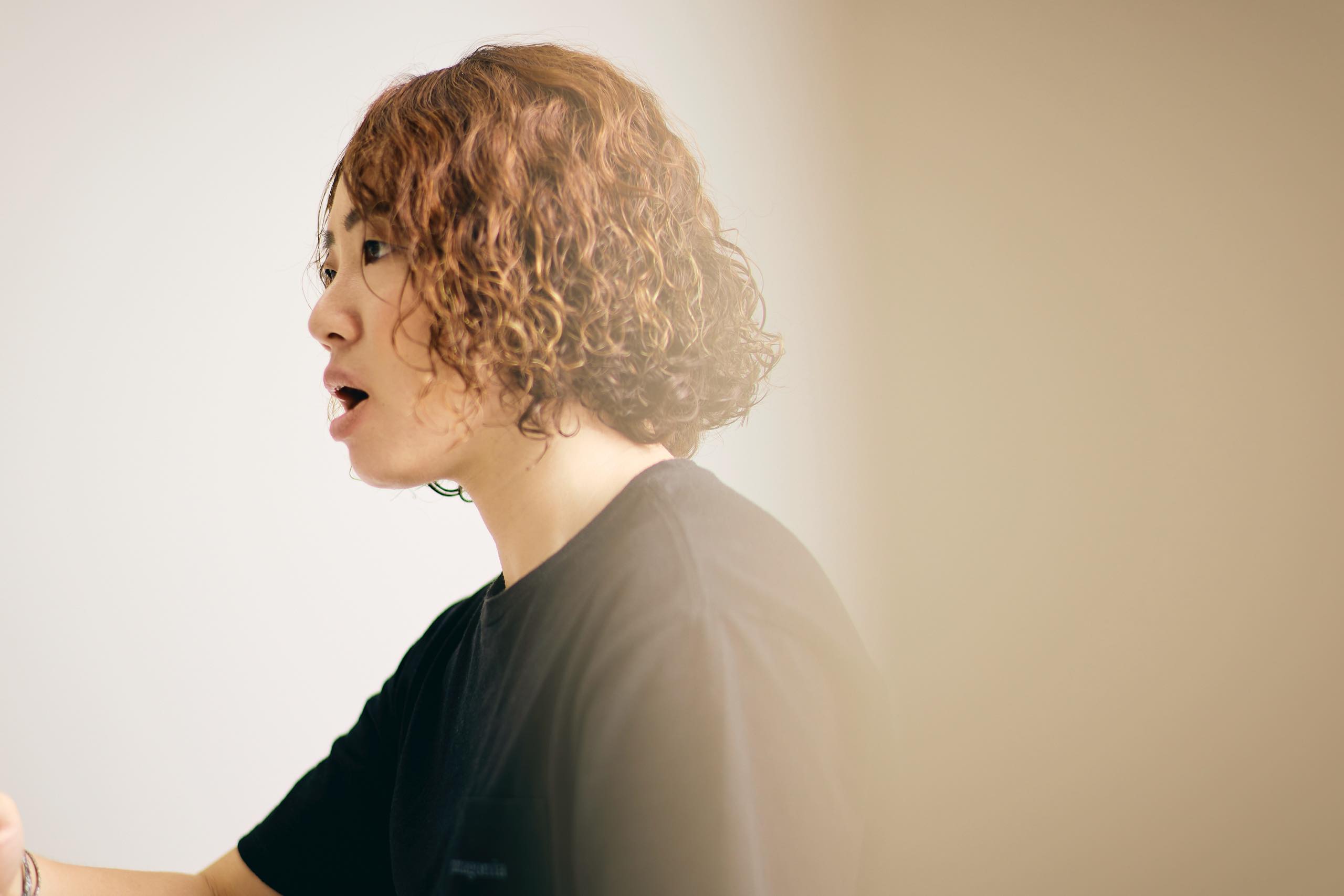
Former mountain chums also aim to compete in the Deaflympics
――You have also posted videos about sign language.
I had been hearing that people who are just starting out with sign language have trouble remembering it because they can’t help looking at the subtitles in the videos. After some thought, I decided to show only sign language at first without subtitles, and then put the same video with subtitles. I have received feedback that doing it that way improves the reading, so I try to upload two different videos.
――What was the event that inspired you to make sign language videos?
I have participated in a sign language society and have learned that people who can hear rarely have the opportunity to interact with people who cannot hear outside of those societies. The society is attended by people who can hear, with the daytime group consisting of retirees and housewives, and the evening group consisting mainly of people who are working and students. There was an opinion that there was no place to study sign language in that society. I decided to make such a video myself in order to bring sign language closer to people.
――Other than yourself, who would you recommend as an athlete, regardless of sports?
It is Minato Kitajima, a deaf cycling mountain biker. We were originally climbing friends. There was an event for the deaf, and that’s where we met. At that time I had just started mountain climbing and we talked “let’s go together” and climbed Mt. Yarigatake. That’s when our exchange began, but one day she told me that she was going to concentrate on cycling and could not go to the mountains from now on. She has since honed her skills and achieved decent results in competitions. We still keep in touch and she is also aiming to participate in the Deaflympics.
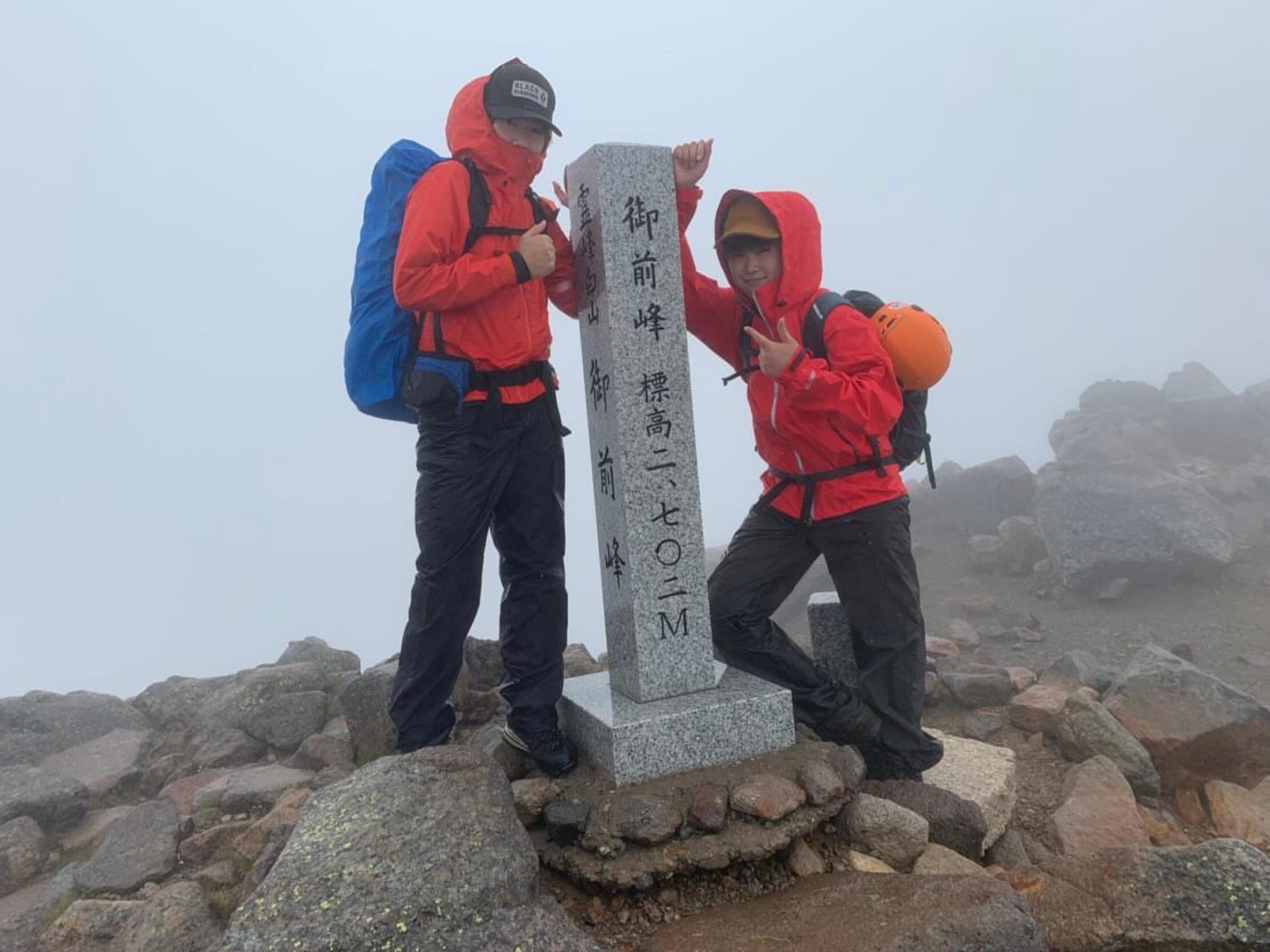
is also aiming to participate in the Deaflympics.
*Courtesy of Yuka Tsuji
――Finally, do you have a message for our readers who are looking forward to the Tokyo 2025 Deaflympics?
Since this is the first Deaflympics to be held in Japan, I think it is an opportunity for people overseas to see many of Japan’s beautiful scenery and good points. I hope many people will be able to watch the competitions there, and I myself will do my best to give a performance that will remain in everyone’s memories!

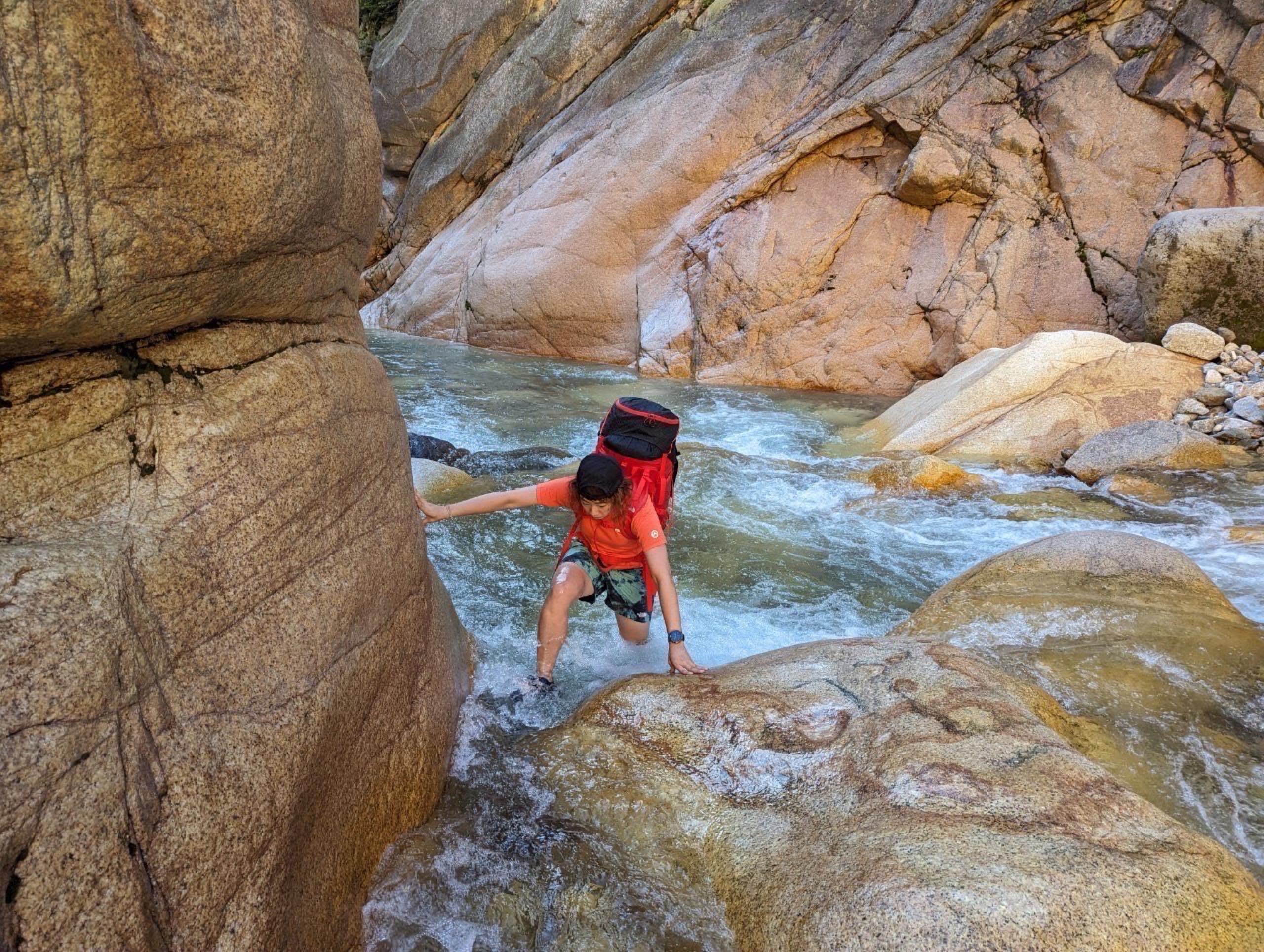
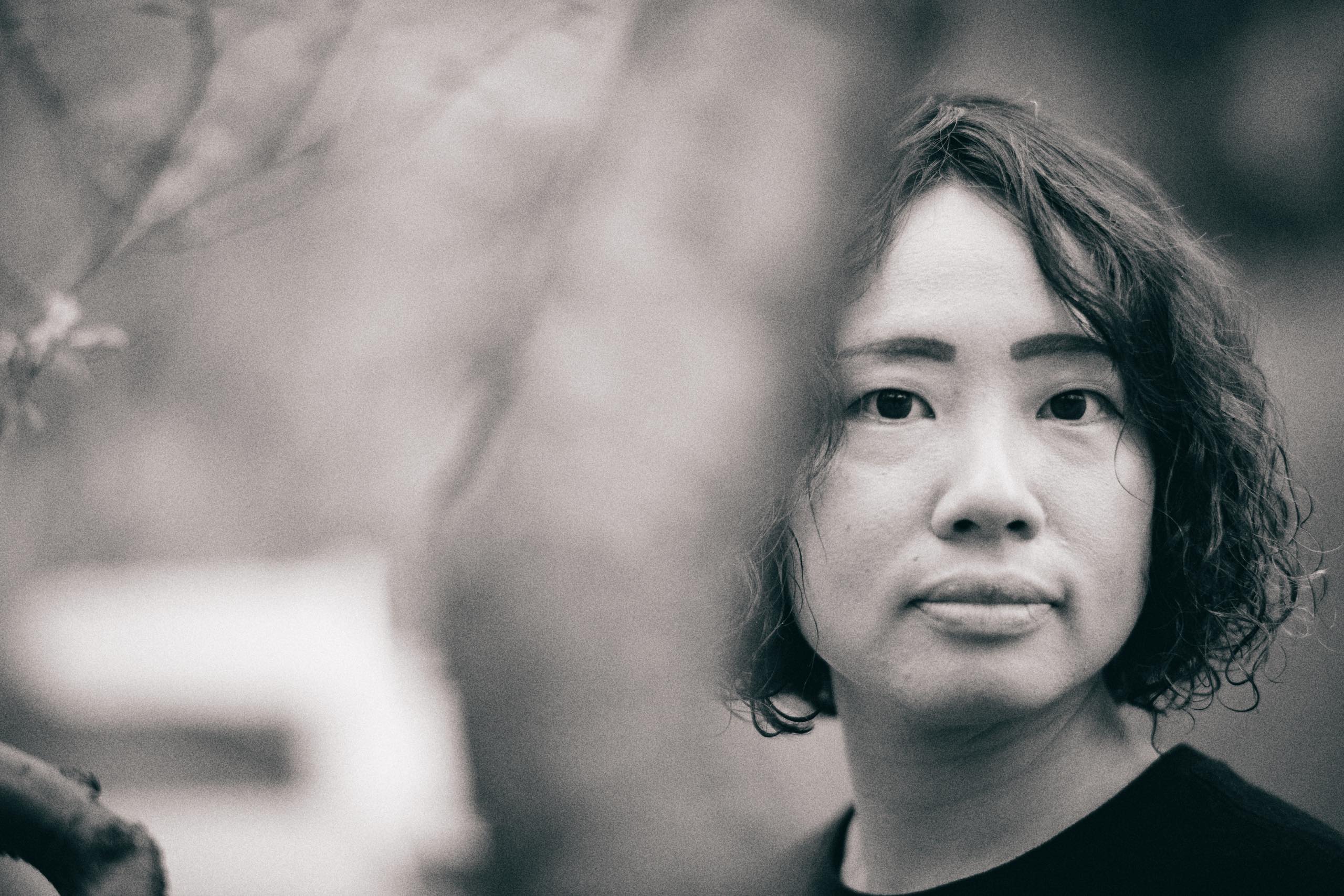
Instagram:yuca_yama
《JAPAN DEAF ORIENTEERING ASSOCIATION》
Instagram:jdoanesw
text by Moritaka Ohashi
photographs by Uta Mukuo
